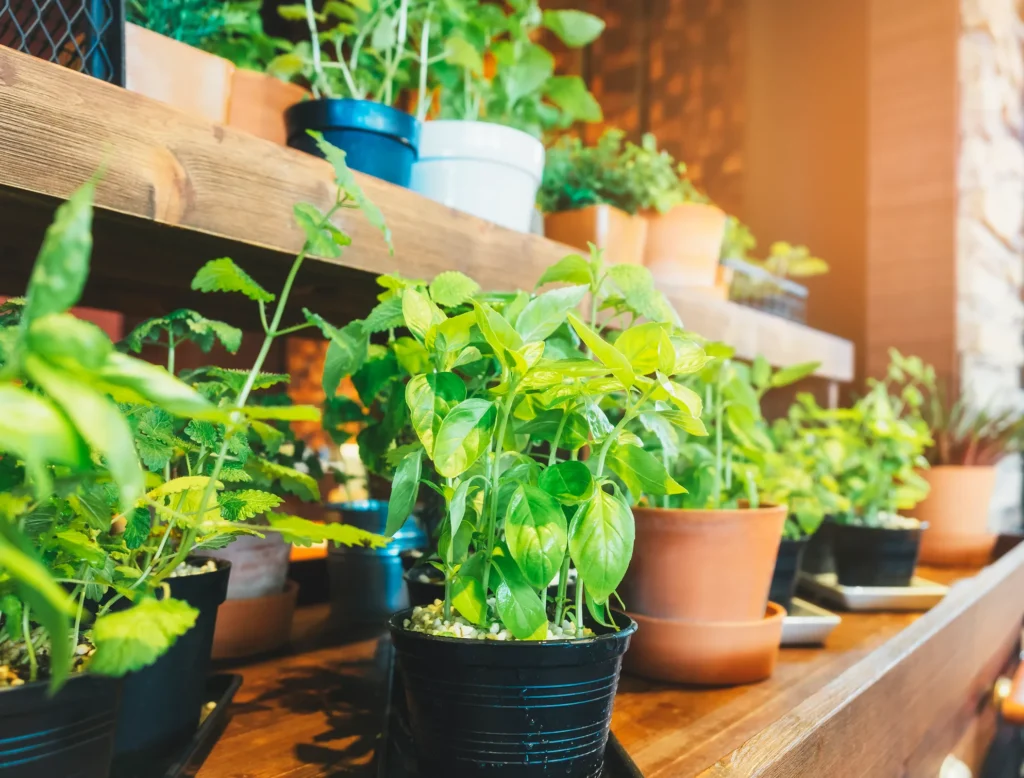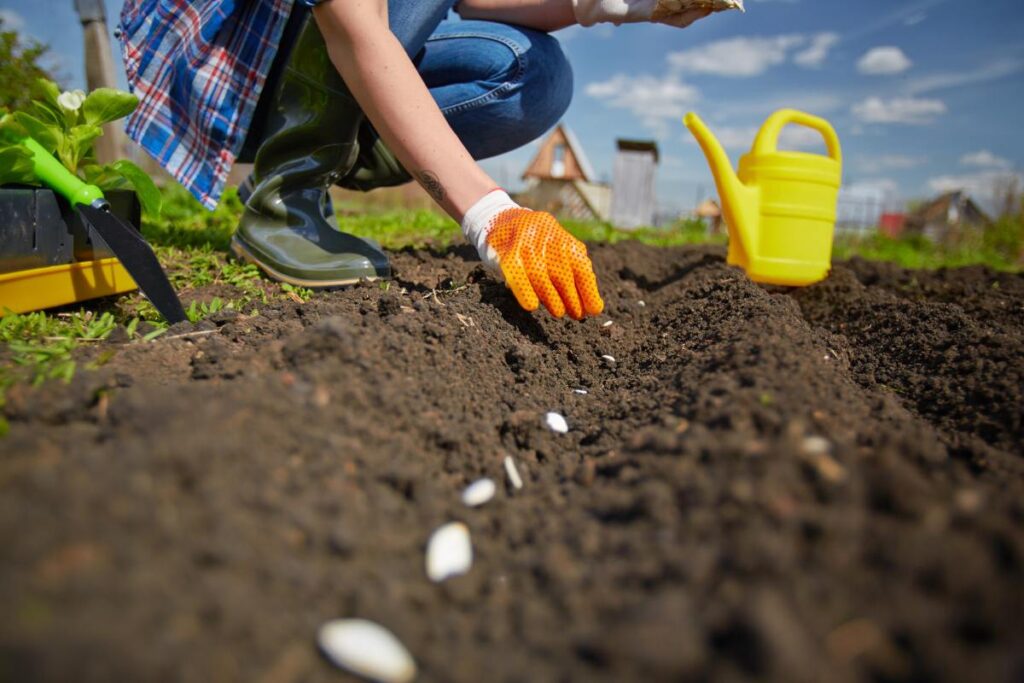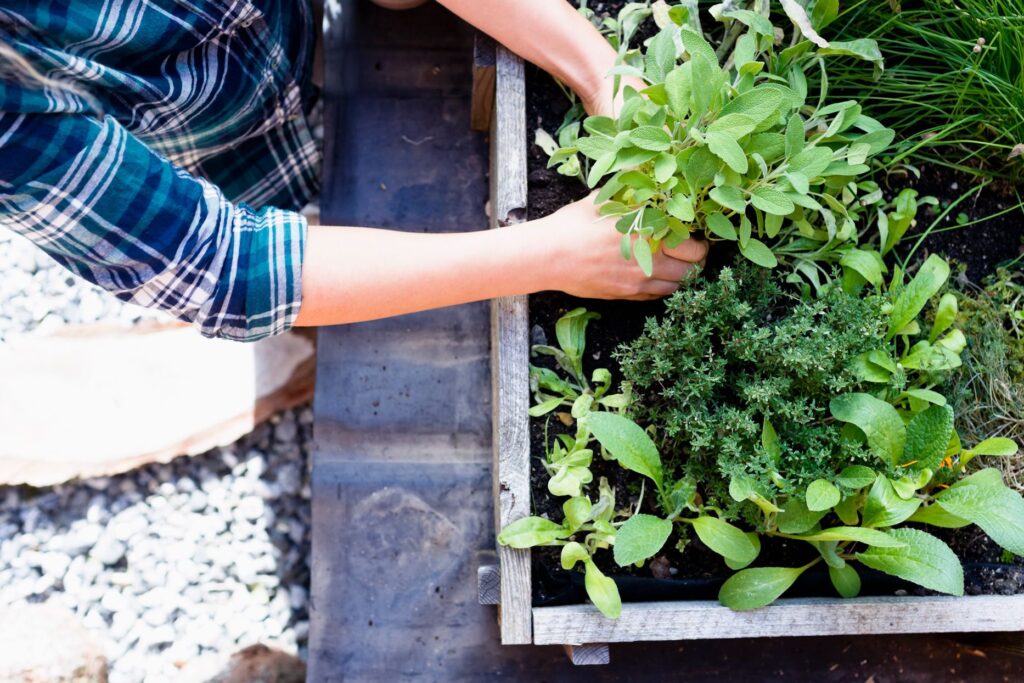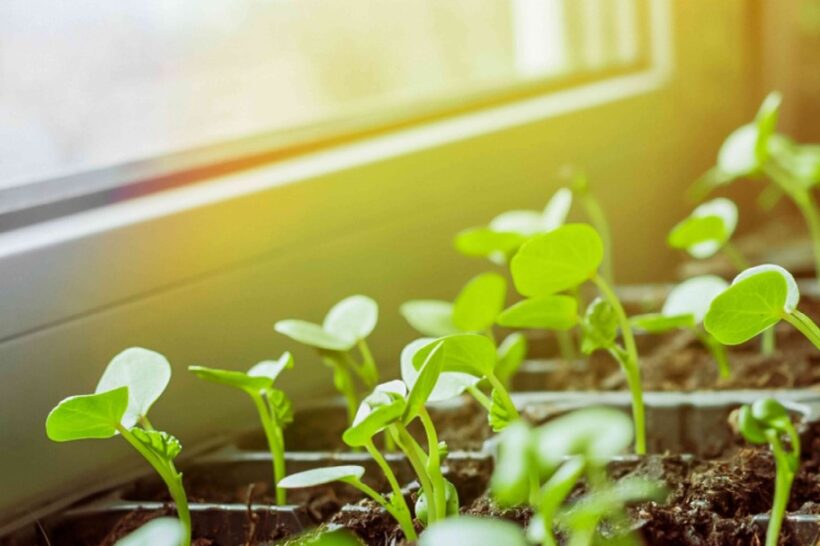Growing herbs from seeds is a versatile and rewarding endeavor that offers two main approaches: indoor and outdoor planting. Each method has its own set of advantages and considerations.
This article will explore the differences between indoor and outdoor planting, helping you decide which option best suits your needs and environment. Visit Organo Republic to buy seeds online.
Benefits and Challenges of Indoor Planting
There are many advantages of growing indoors.
Year-Round Growth
Indoor planting allows you to grow herbs year-round, regardless of outdoor weather conditions. This is particularly beneficial in regions with short growing seasons or harsh winters.
Controlled Environment
Indoors, you have better control over temperature, light, and humidity, which can result in healthier plants. You can create an optimal environment for each type of herb.
Pest and Disease Management
Growing herbs indoors helps keep them safe from common garden pests and diseases. It’s easier to monitor plants closely and address any issues promptly.
Convenience
Having fresh herbs readily available in your kitchen can enhance your culinary experience. You can quickly snip off the herbs you need while cooking.
Challenges

You may encounter the following challenges.
Space Limitations
Indoor gardening may be limited by available space. Small apartments or homes with limited natural light might require creative solutions like vertical gardening or using grow lights.
Light Requirements
Herbs generally need 6-8 hours of sunlight daily. If natural light is insufficient, you’ll need to invest in grow lights to ensure your plants get enough light.
Overwatering Risks
Indoor plants are more susceptible to overwatering due to less evaporation. Proper drainage and careful watering practices are essential to prevent root rot.
Ideal Herbs for Indoor Planting
- Basil
- Chives
- Mint
- Parsley
- Thyme
- Oregano
Benefits and Challenges of Outdoor Planting

There are many advantages of growing outdoors.
Natural Light
Outdoor planting provides herbs with abundant natural sunlight, which is essential for their growth and flavor development.
Space and Airflow
Gardens offer more space for herbs to spread out, promoting healthier root systems. Proper spacing also improves air circulation, reducing the risk of fungal diseases.
Ecosystem Support
Outdoor gardens contribute to the local ecosystem by attracting pollinators like bees and butterflies. They also support soil health through natural processes.
Cost-Effective
Outdoor planting typically requires fewer resources than indoor setups, such as grow lights and containers. The natural environment provides many of the necessary elements for plant growth.
Challenges
You may encounter the following challenges.
Weather Dependence
Outdoor planting is subject to weather fluctuations, which can affect herb growth. Frost, heavy rain, or extreme heat can damage delicate plants.
Pests and Diseases
Herbs grown outdoors are more exposed to pests and diseases. Regular monitoring and organic pest control methods are necessary to protect your plants.
Seasonal Limitations
In regions with cold winters, outdoor herb gardens are limited to the growing season unless you use strategies like cold frames or greenhouses.
Ideal Herbs for Outdoor Planting

- Rosemary;
- Sage;
- Lavender;
- Dill;
- Cilantro;
- Fennel.
How to Decide ─ Indoor vs. Outdoor Planting
Evaluate the available space in your home and garden. If you have ample outdoor space with good sunlight, you may prefer outdoor planting. In contrast, limited outdoor space or poor soil conditions might make indoor planting a better option.
Consider Your Climate
Your local climate plays a significant role in determining the best planting method. Mild climates with long growing seasons are ideal for outdoor planting, while regions with extreme weather conditions may benefit from indoor gardening.
Evaluate Your Lifestyle
Think about your daily routine and how much time you can dedicate to garden maintenance. Indoor plants require regular care like watering and adjusting grow lights, while outdoor gardens need attention to weeding, pest control, and weather protection.
Combine Both Methods

You don’t have to choose exclusively between indoor and outdoor planting. Combining both methods allows you to enjoy the benefits of each. Start seeds indoors and transplant them outdoors when the weather is favorable, or grow tender herbs indoors and hardier ones outside.
Indoor Planting Tips
- Light ─ Use south-facing windows or invest in quality grow lights to provide sufficient light.
- Containers ─ Choose pots with drainage holes to prevent waterlogging. Use saucers to catch excess water.
- Soil ─ Use a high-quality potting mix designed for herbs. Avoid garden soil, which can be too dense for indoor containers.
- Watering ─ Keep the soil consistently moist but not soggy. Check the soil moisture regularly and adjust watering as needed.
- Humidity ─ Place a tray of water near your herbs or use a humidifier to maintain adequate humidity levels.
Outdoor Planting Tips
- Site selection ─ Choose a sunny spot with at least 6-8 hours of direct sunlight daily. Ensure the area has well-draining soil.
- Soil preparation ─ Amend the soil with compost or organic matter to improve fertility and drainage.
- Spacing ─ Space plants according to their mature size to ensure proper airflow and reduce disease risk.
- Watering ─ Water deeply and infrequently to encourage deep root growth. Mulch around plants to retain soil moisture and suppress weeds.
- Pest control ─ Monitor plants regularly for pests and diseases. Use organic methods like neem oil, insecticidal soap, or introducing beneficial insects.
Conclusion
Both indoor and outdoor planting have unique benefits and challenges. Your choice depends on your available space, climate, lifestyle, and gardening goals. By understanding the requirements of each method and considering your specific circumstances, you can successfully grow a thriving herb garden that provides fresh, flavorful herbs all year round.
